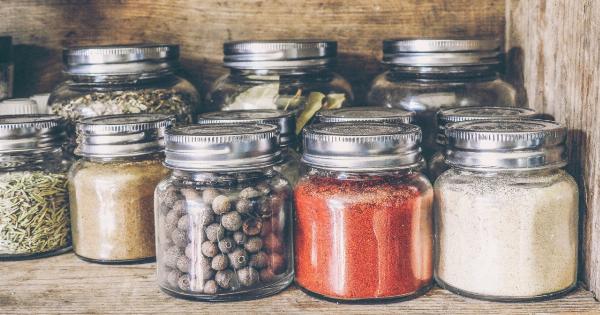Calcium is an essential mineral that plays a vital role in maintaining strong bones and teeth, as well as supporting overall health.
While dairy products are often considered the go-to source of calcium, there are plenty of non-dairy options that are equally rich in this important nutrient. Whether you follow a dairy-free diet or simply want to diversify your sources of calcium, here are ten non-dairy foods that can help you meet your calcium needs.
1. Spinach
Packed with nutrients, spinach is not only a great source of calcium but also rich in iron, fiber, and vitamins A and C.
One cup of cooked spinach contains about 245 milligrams of calcium, which is approximately 24% of the daily recommended intake for adults. Adding spinach to your salads, soups, or smoothies can be an excellent way to boost your calcium intake.
2. Chia Seeds
Chia seeds are tiny powerhouses of nutrition, containing a variety of nutrients, including calcium. Just two tablespoons of chia seeds provide about 177 milligrams of calcium. Additionally, they are high in fiber, beneficial fats, and antioxidants.
You can easily incorporate chia seeds into your diet by sprinkling them on cereals, yogurt, or adding them to your favorite smoothie recipe.
3. Almonds
Almonds are not only a delicious snack but also an excellent source of calcium, among other essential nutrients. A quarter cup of almonds provides around 94 milligrams of calcium.
They are also rich in healthy fats, protein, and fiber, making them a wholesome addition to your diet. Enjoying them as a standalone snack or including chopped almonds in your salad or yogurt can help increase your calcium intake.
4. Kale
Kale is a nutrient-dense leafy green vegetable that boasts an impressive calcium content. One cup of cooked kale contains approximately 94 milligrams of calcium. Additionally, kale is rich in vitamins A, C, K, and various antioxidants.
You can enjoy kale by sautéing it as a side dish, adding it to soups, or mixing it into your favorite green smoothie.
5. Oranges
You might be surprised to learn that oranges can also contribute to your calcium intake. One medium-sized orange contains around 60 milligrams of calcium. They are also an excellent source of vitamin C and fiber.
Including oranges in your daily fruit intake can provide a refreshing and nutritious way to increase your calcium levels.
6. Tofu
Tofu, made from soybeans, is a versatile and popular plant-based source of calcium. Depending on the type and brand, tofu usually contains about 120 to 750 milligrams of calcium per serving. It is also a good source of protein and iron.
Incorporating tofu into stir-fries, salads, or blending it into smoothies can add a significant amount of calcium and other essential nutrients to your meals.
7. Salmon
Salmon is not only a great source of omega-3 fatty acids but also provides a decent amount of calcium. One 3-ounce serving of canned salmon with bones contains approximately 181 milligrams of calcium.
It is also rich in protein and vitamin D, which is essential for calcium absorption. Including salmon in your diet can offer a double boost of beneficial nutrients.
8. Broccoli
Broccoli is a nutritional powerhouse packed with vitamins, minerals, and antioxidants, including calcium. One cup of cooked broccoli provides about 62 milligrams of calcium. It is also a great source of fiber and vitamin C.
Steaming or roasting broccoli as a side dish or adding it to pasta dishes and stir-fries can help increase your calcium intake while enjoying a tasty and nutritious vegetable.
9. Sesame Seeds
Sesame seeds may be tiny, but they are surprisingly rich in calcium. Just one tablespoon of sesame seeds contains approximately 88 milligrams of calcium. They are also an excellent source of healthy fats, protein, and fiber.
Sprinkling sesame seeds on salads, stir-fries, or using them as a coating for baked goods can provide a calcium boost to your meals.
10. Black Beans
Black beans are not only a great source of plant-based protein and fiber but also provide a notable amount of calcium. One cup of cooked black beans contains around 46 milligrams of calcium.
Including black beans in your diet by adding them to soups, salads, or making homemade bean burgers can help increase your calcium intake while enjoying a delicious and hearty meal.
Conclusion
While dairy products are commonly associated with calcium, there are numerous non-dairy alternatives that can provide abundant amounts of this essential mineral.
Including calcium-rich foods like spinach, chia seeds, almonds, kale, oranges, tofu, salmon, broccoli, sesame seeds, and black beans in your diet can support optimal bone and teeth health, as well as overall well-being. By diversifying your calcium sources, you can maintain a balanced and nutritious diet even without dairy.






























